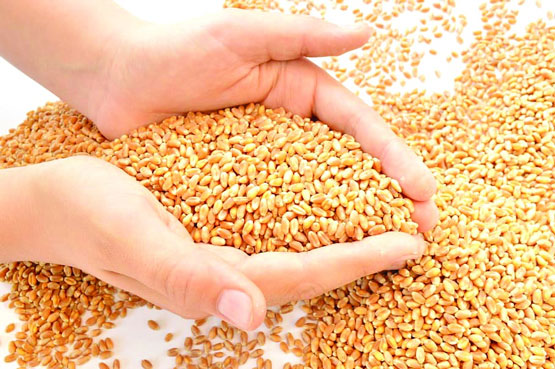Demand for wheat doubled in a decade
Production fallen by 1.36 lakh MT
Zarif Mahmud: After rice, we eat more food made by wheat. Products like bread, bread, biscuits add variety to our diet. At present, more than two-thirds of processed food in the country is made of wheat. The trend of eating roti-parota at home has also increased more than before. At the same time, the import of wheat has increased. Despite the increase in demand, the production of wheat has decreased instead of increasing.
According to the data, the demand for wheat in Bangladesh has doubled in the last decade. Production did not increase during this period. Instead, it has decreased by about 20 percent. As a result, the dependence on imports has increased massively. Which is becoming a cause of concern for overall import costs and food-security.
According to the data of Bangladesh Bureau of Statistics (BBS), in the last fiscal year 2022-23, the production of wheat in the country was 11 lakh 70 thousand tons. Whereas a decade ago (2013-14 fiscal year) the production of wheat in the country was 13 lakh 6 thousand tons.
According to the Ministry of Food, the country now has to import an average of 50 to 67 million tons of wheat and wheat products annually. A decade ago (2013-14 fiscal year) 33 lakh tonnes of wheat was imported. Currently, the cost of the country for wheat is between $1.5 billion to $2.5 billion dollars. Which fluctuates with the price of wheat in the international market.
Abul Bashar Chowdhury, Chairman of BSM Group, one of the country’s top importers, believes that the growing demand for wheat in the country will continue. He said, not only home food, but now the demand for wheat is increasing with the processed food market. Because the demand for bread, bakery, fast food etc. products is increasing in these countries. Which is a big reason.
He said that the demand for wheat is increasing day by day not only in Bangladesh but also in developing countries. Again, the price of rice increases in the market and there is an additional pressure on wheat. When the price of rice is high, consumption of flour increases when the price of wheat is low. It has been happening for the past few years. Besides, the consumption of wheat and wheat-based products has also increased as animal feed.
Former Chairman of Agricultural Research Foundation Prof. MA Hamid said, we could not increase production as our demand is increasing and will increase. Both acreage and production of wheat are gradually decreasing. Because farmers are turning to alternative crops, which are now more profitable than wheat.
He said, besides, wheat is a long-term crop. Wheat requires a long winter, which is decreasing day by day in the country. As a result, the yield is also decreasing. The agriculturist also said that in 2015 and 2017,
blast disease caused extensive damage to wheat. At that time, many farmers left wheat farming altogether. The fear of cultivating that crop is still not over. Although the severity of fungal diseases has decreased in recent years. Yet they are not interested.
According to the information of the Department of Agriculture, where wheat was cultivated on 46 lakh hectares of land in the country a decade ago, it has now reduced to 30 lakh hectares.
Agricultural economist Dr. Aktaruzzaman told that since there is no option to increase wheat cultivation, a policy should be formulated to restore the wheat cultivation area to the previous level. Incentives are needed to motivate farmers. Then one can think of increasing the production.
He said that farmers should work closely with local extension officers including Bangladesh Wheat and Maize Research Center (BWMRI), Bangladesh Agricultural Research Institute (BARI), Directorate of Agricultural Extension to increase wheat production.
Agricultural economists also say that another reason for the decline in wheat production is the increase in maize cultivation. At the same time, farmers are losing interest in wheat cultivation due to high irrigation cost compared to maize, lack of good seeds, low yield, labor shortage and adverse weather conditions. They are cultivating corn.
Gazi MA Jalil, Professor of Agricultural Management, Bangabandhu Agricultural University said that the increasing trend in maize prices has encouraged farmers to cultivate them. But we have to increase our focus on wheat as well, because importing wheat costs a lot. If the price increases in the world market, it affects the price of many foods in the country. Even processed food exports are affected by wheat prices.
Director General of Bangladesh Wheat and Maize Research Institute Ghulam Farooq said that wheat is not growing at the same time as other crops due to global climate problems, competition with different crops, limitations of suitable varieties.
Stating that the fair price of wheat is a big problem, this researcher said that farmers are not getting fair price by cultivating wheat. Although the government fixes the price, the actual price is Tk 15 to Tk 16 per kg, which should be Tk 30 for profit.
Ghulam Farooq also said that there is no alternative to ensure the fair price of farmers. It is the second major food grain. If production decreases, food insecurity will increase. Contract farming can be arranged for this.
Rare Israeli airstrike in Beirut kills Hezbollah commander and more than a dozen others
International Desk: Israel launched a rare airstrike that killed a senior Hezbollah milita…








